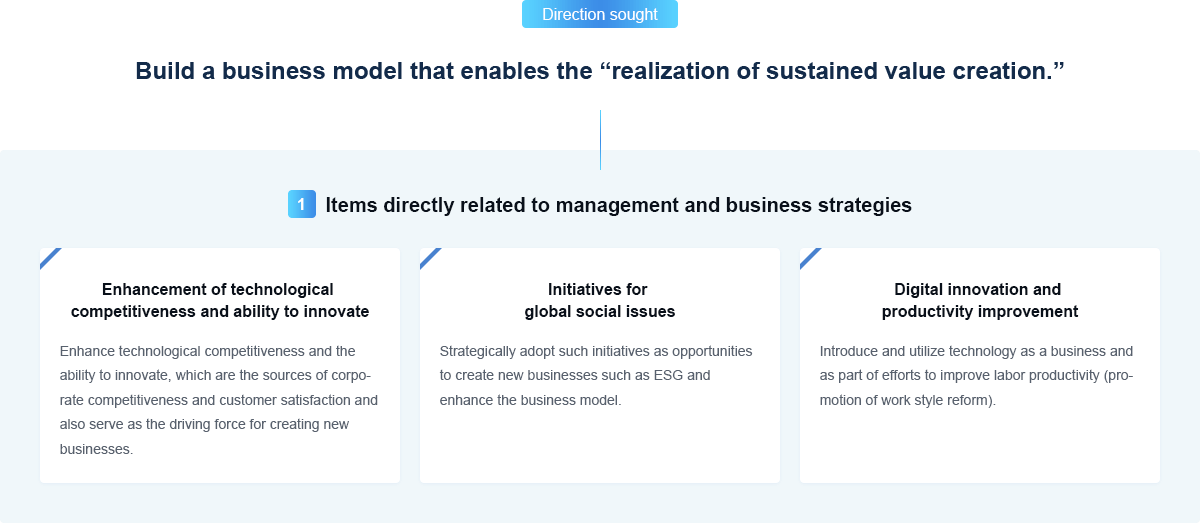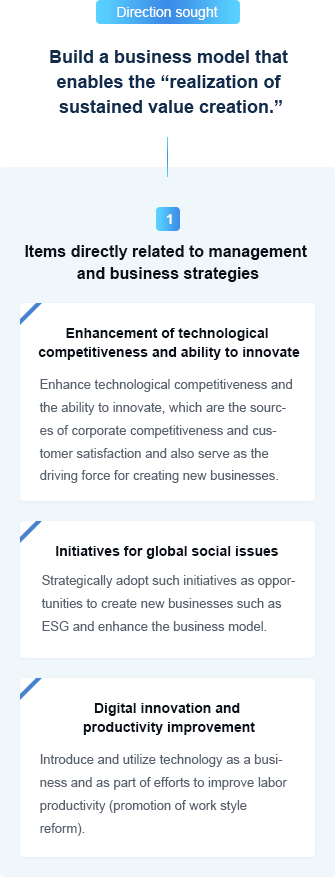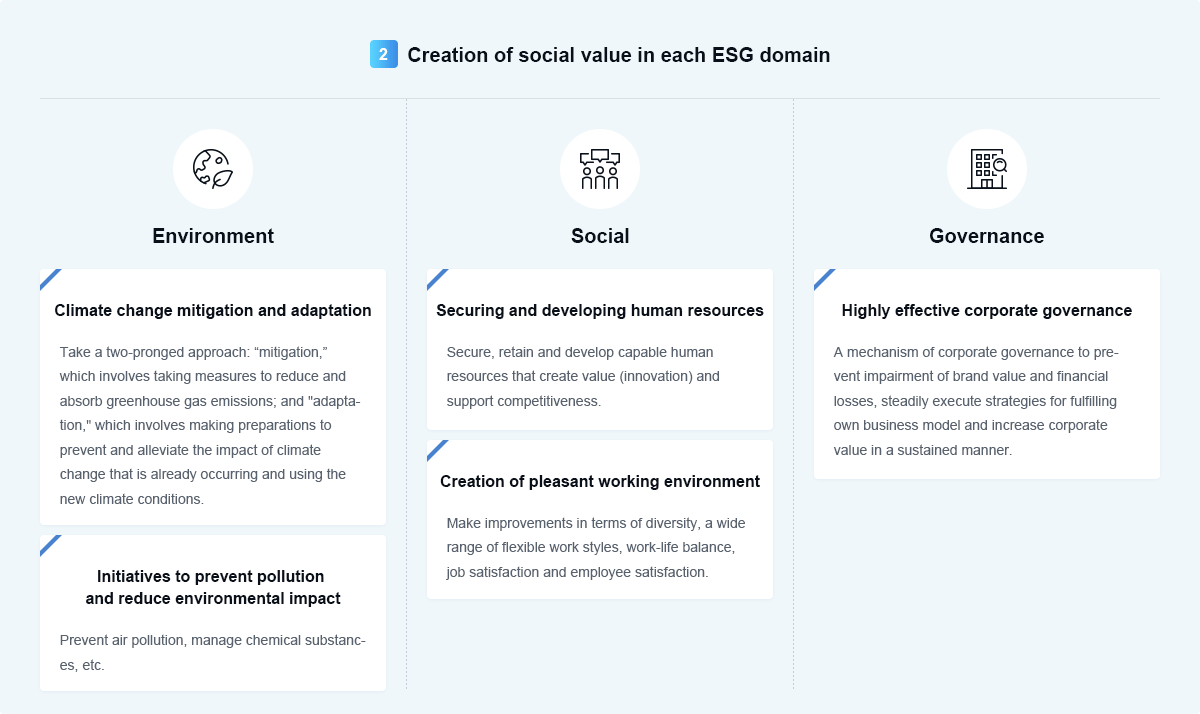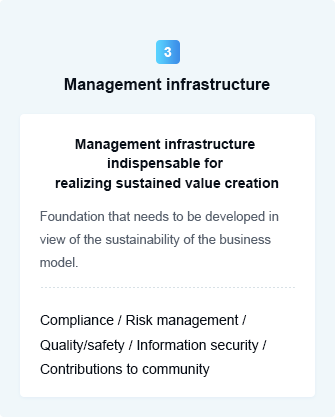Taikisha's Materiality
Taikisha believes it is important to determine, assess and verify "materiality" in terms of "material matters" at the management level that should be addressed as a matter of priority, and run the PDCA cycle for CSR activities without fail.
Review of Materiality
In consideration of changes in society that have taken place since the determination of "materiality" in June 2017, Taikisha conducted a materiality assessment afresh in view of both sustainability of society (i.e., stakeholders’ expectations) and sustainability of Taikisha (i.e., the extent of the impact on long-term growth).
This time, the top management played a central role in reviewing materiality, following discussion and confirmation of appropriateness (based on a questionnaire survey) by members of the Board of Directors.
The key focus of discussions was "shifting from CSR materiality to management materiality," and the biggest objective was to "build a business model that would enable the realization of sustained value creation" by envisioning Taikisha in its ideal form from a long-term perspective and its roadmap/direction to realize it.
Key Aspects of the Latest Review
- Internal viewpoint: Made members of the Board of Directors’ understanding visible
Members of the Board of Directors’ understanding of material management issues at present were made visible based on discussions of Directors and Audit & Supervisory Board Members. - Viewpoint based on external yardstick: Added economic value aspect to list of candidate material issues
ESG factors were added to the list of candidate material issues from the viewpoint of corporate value by taking financial impact into account as well, not just ESG factors related to social responsibility. - Viewpoint of the post-COVID-19 world: Factors based on a "vision of the post-COVID-19 world" were added as a long-term point of view that will be required especially due to dramatic changes.
Evolution of Materiality at Taikisha
CSR materiality
- From 2017 To present
- Started as materiality for seeking higher corporate value at the same time as well as fulfilling corporate social responsibility.
Materiality based on a vision of Taikisha in its ideal form from a long-term perspective
- From 2020 In the present
- Seek materiality in "building a business model that enables the realization of sustained value creation," review materiality.
- From 2020 Into the future
- Hold ongoing discussions at the management level including Directors, sort the relationship among material issues that have been determined, and consider setting key performance indicators (KPIs), etc.
Materiality Determination Process
Taikisha specified the candidate material issues by broadly taking into consideration the International Integrated Reporting Framework, the viewpoint of Socially Responsible Investment (SRI), global risks, Sustainable Development Goals (SDGs) and other new issues surrounding sustainability, in addition to various conventional frameworks and guidelines related to social responsibility from an all-encompassing viewpoint.
Taikisha quantified and visualized weighting from its clients' perspectives based on the materiality to its major clients, in addition to weighting as recognized by society in general based on external frameworks and guidelines in terms of weighting evaluation by external standards.
-
Formulation of a list of candidates (selection of issues)
-
Materiality assessment (at two levels, i.e., viewpoint of external stakeholders and viewpoint in terms of impact on business)
-
Confirmation of appropriateness and discussion
-
Determination (updating)
New Materiality Scheme
Taikisha determined eight material issues that leverage its strengths and DNA to build a business model that would enable the "realization of sustained value creation" by dividing them into: (1) items directly related to management and business strategies; and (2) items that create social value. Additionally, Taikisha sorted items that are indispensable for realizing them into (3) "management infrastructure."
Direction Sought
Build a business model that enables the "realization of sustained value creation."









